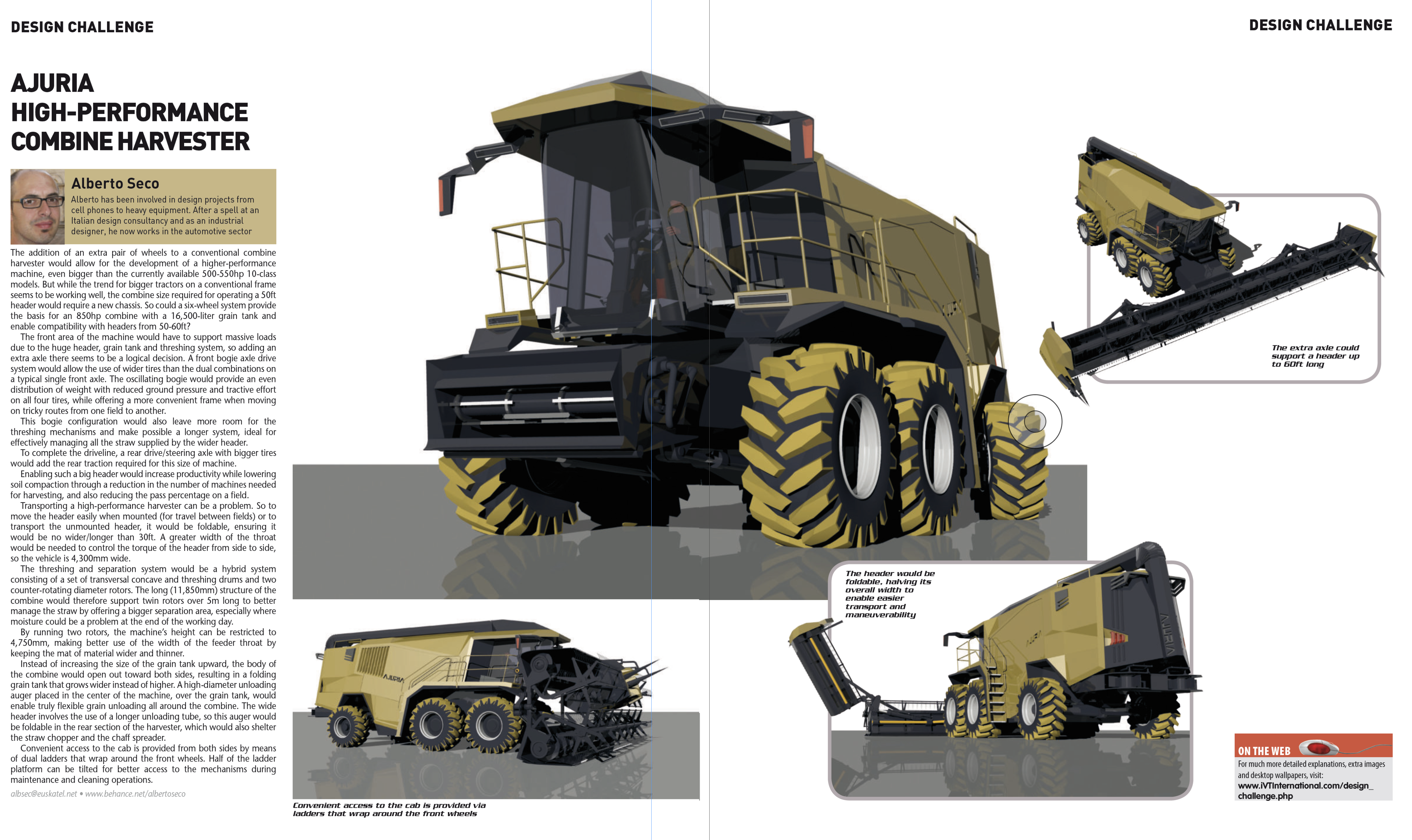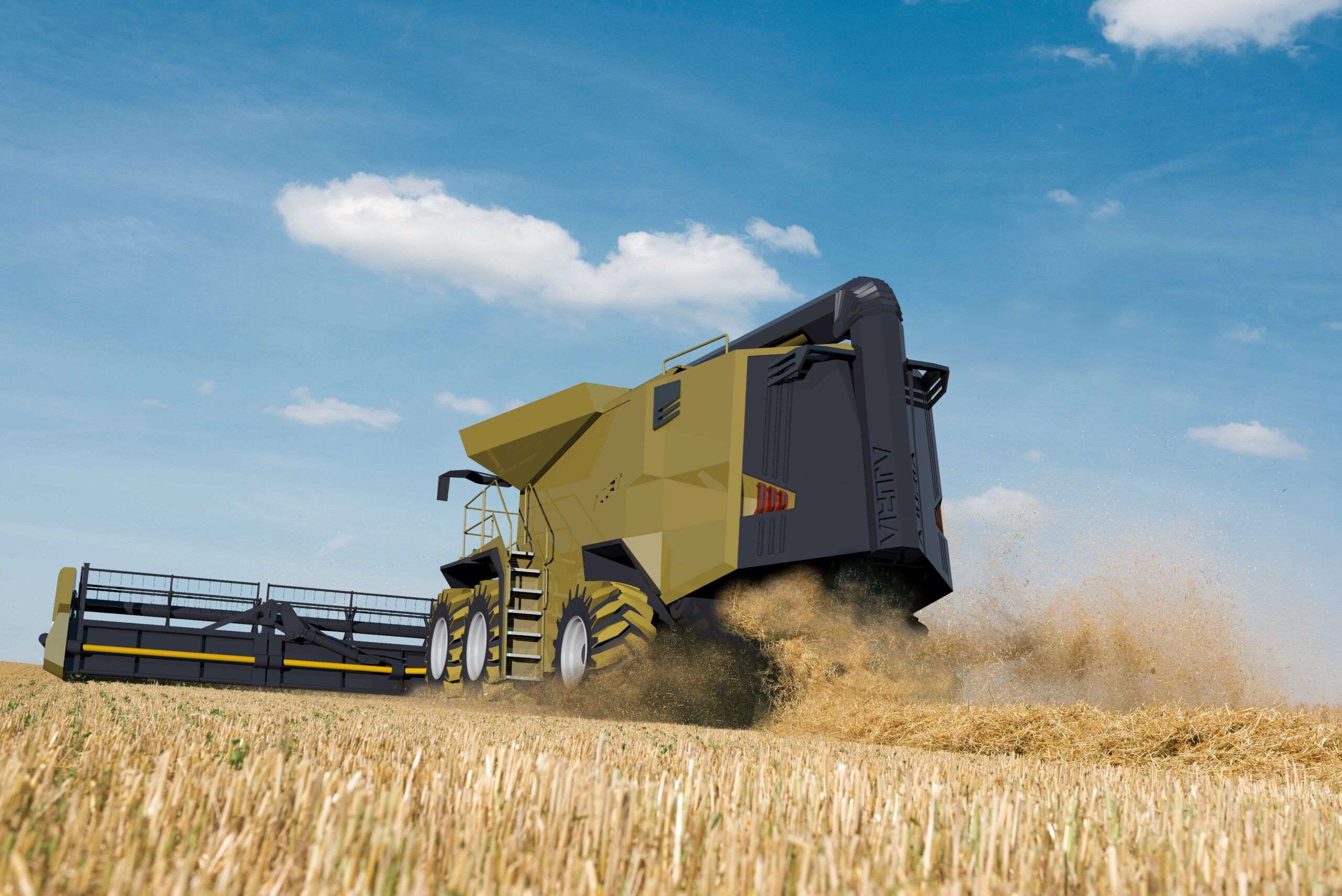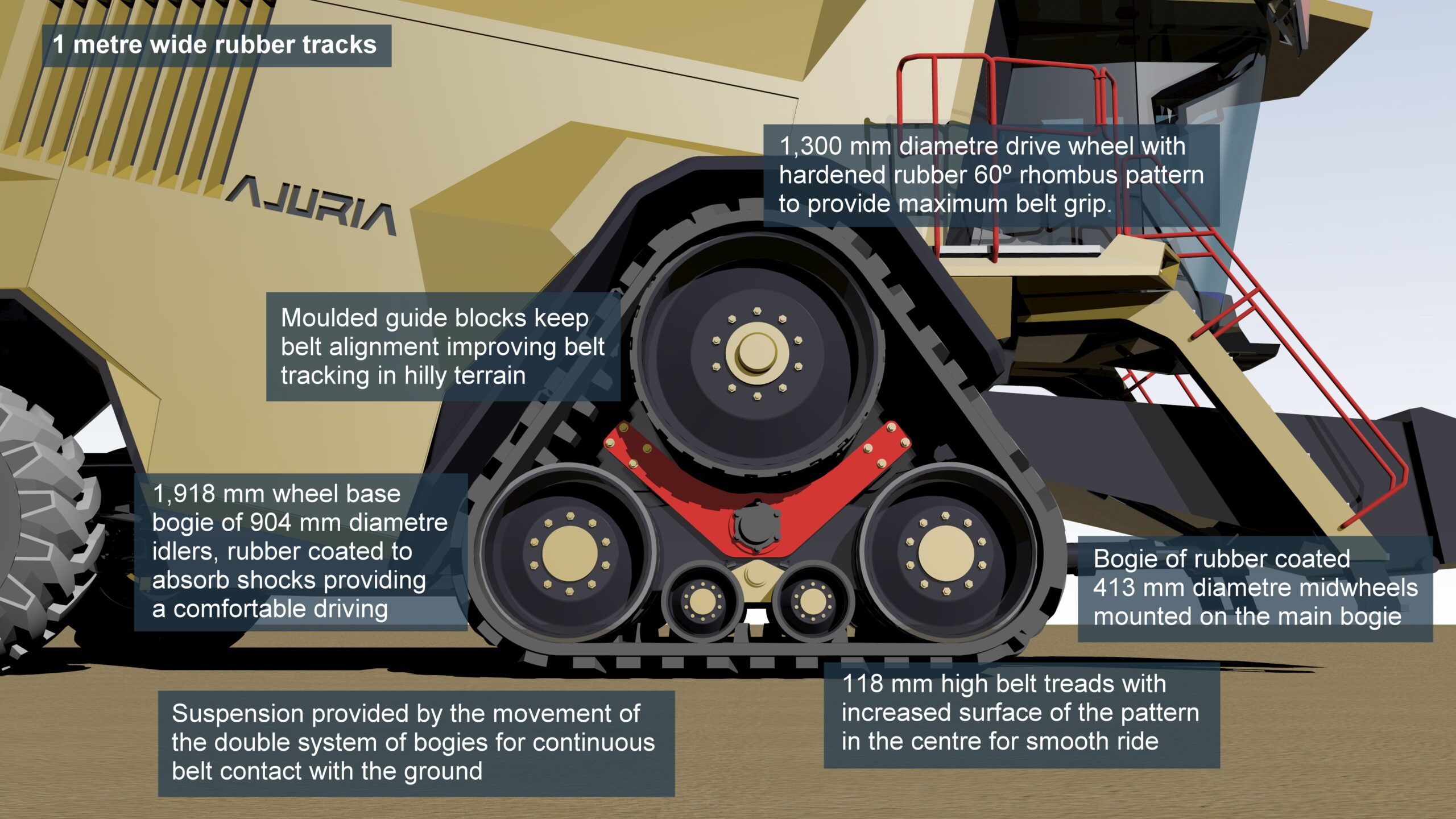This decade, mix harvesters have turn out to be considerably bigger and extra highly effective – and again in 2016 the Ajuria idea, designed by Alberto Seco and revealed within the pages of iVT, predicted this development. Now, Seco has returned to the design to replace it for a brand new period
When the primary model of the six-wheel Ajuria mix harvester idea was revealed within the March 2016 concern of iVT, only some combines had been accessible within the Class 10 class (presently outlined as exceeding 680hp). Again then, photographs of Class 10 prototypes underneath testing might be discovered on the web, for instance a large, vast and lengthy John Deere harvester. There have been additionally some photos of a purple machine with large rubber tracks that appeared to be a brand new Massey Ferguson.
One 12 months later, AGCO unveiled the primary items of this Preferrred Sequence constructed within the former Laverda plant at Breganze, Italy. The purple color had been changed into excessive gloss black to serve the three AGCO manufacturers: Massey Ferguson, Fendt and Challenger. By then the New Holland CR10.90 Elevation was additionally launched, with
a most energy of 653hp, due to its FPT Cursor 16 engine.
The largest headers offered by the OEMs had been the 13.10m (45ft) mounted on the North American Massey Ferguson 9895, Case IH Axial-Stream 9240 and New Holland CR10.90. A substantial grain tank of 14,448 litres (410 bu.) was fitted within the Case IH and New Holland fashions. And, as a dimension associated to the scale of the threshing techniques, the Massey Ferguson Delta 9380 was fitted with twin rotors of 4250mm size.
All these specs had been exceeded by the Ajuria idea mix with a 850hp energy unit, a 16,500-litre grain tank and headers from 50-60ft.

Assembly the design problem
In 2016, the Ajuria high-performance mix (which takes its title from a Spanish OEM that made agricultural equipment within the first half of the twentieth century) tried to satisfy an iVT Design Problem primarily based on the next query: “What impact would including at the least one further axle to a historically two- axled machine have on its design, dimensions and efficiency?”
The addition of an additional pair of wheels to a mix harvester would permit for the event of a higher-performance machine, supporting large hundreds as a result of large header, grain tank and threshing system. The entrance bogie axle drive system would erase the necessity for twin tyre combos on a typical single entrance axle. This configuration would additionally make an extended system attainable, supreme for successfully managing all of the straw provided by the broader header.
The rubber tracks had considerably improved efficiency on large combines for the reason that introduction of the caterpillar system (which had been first developed for the Challenger farm tractors) on the Lexion vary of combines by Claas.
Nonetheless, the launch of the brand new AGCO Preferrred opened the door to creating greater techniques with totally different configurations. Since 2017, the scale of mix harvesters has saved rising to develop a correct market of Class 10 combines, and rubber monitor techniques have been instrumental to deal with large hundreds on the entrance axle.
They’ve offered harvesters with even distribution of weight with decreased floor strain and improved tractive effort. Thus, the Ajuria II Sequence Class 10 idea mix has been fitted with a pair of rubber tracks.

A high-performance market
How would the ideas of 2016 stand in at present’s market? All OEMs have elevated the scale of grain tanks exceeding 16,500 litres and the brand new Case IF AF11 mix has reached a capability of 19,980l (567 bu.).
The previous Ajuria mix had an excessively lengthy cab, and now, it has been decreased for the tracked mannequin to depart extra room for an even bigger tank.
To extend headers width as much as 18m (60ft), the CNH group enlisted McDon, a provider of specialized headers. For the Ajuria mix, the previous 50-60ft headers had been designed as foldable items to facilitate the transport of the mix with out dismounting the header.
Ajuria’s threshing and separation system, which consists of a set of transversal concave and threshing drums and two counter-rotating diameter rotors, is the usual configuration for the present Class 10 combines market, with twin rotors measuring underneath 5m in size.
The Ajuria II Sequence idea harvester retains the foldable centred unloading auger, over the grain tank, to supply actually versatile grain unloading throughout the mix permitting the unload in direction of either side.
A brand new handy entry to the cab has been designed for either side by the use of twin ladders that may be positioned on longitudinal or transversal course to supply two alternative ways of entry to the cab.

This text first appeared within the iVT Off-Freeway Annual 2025 which is on the market to learn HERE


